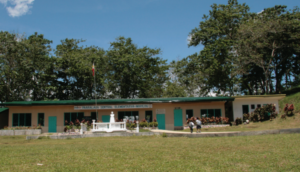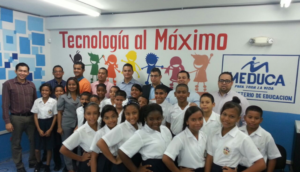Providing Quality E-Learning in Challenging Environments
Costa Rica’s population is largely concentrated in its capital, San José. However, a quarter of the country’s total population lives in poverty. In rural areas, connectivity is scarce or entirely absent, with internet penetration 41% lower than in urban zones. Even when internet is available, speeds are slow, and no region in Costa Rica has more than 5% of its connections reaching speeds above 15 Mbps.
To address these inequalities, the National Telecommunications Fund (FONATEL) — part of the Telecommunications Superintendence (SUTEL) — was established. Funded by mandatory contributions from telecom operators, FONATEL leads several programs designed to close the digital divide and bring universal access to internet connectivity across the country.
One of these efforts is the Tecno@prender initiative, launched to enhance education in Costa Rica by integrating digital technologies into teaching and learning processes. The program promotes access to technology across the educational community and fosters cognitive and social development by encouraging innovative teaching practices.
As part of Tecno@prender, various educational and governmental institutions—including the Ministry of Public Education (MEP), the Ministry of Science, Technology and Telecommunications (MICITT), CEN-CINAI (Centers for Education, Nutrition and Childcare), and the Costa Rican Social Security Fund (CCSS)—received technological resources, including the C3 Micro-Cloud.
CONNECTING STUDENTS OF ALL AGES TO KNOWLEDGE
The CINDEA (Centro Integrado de Educación de Adultos) is a network of schools aimed at young people and adults who have not completed primary or secondary education or are seeking technical training to join the workforce. On November 14, 2017, CINDEA was among the schools that received a full suite of technological tools thanks to FONATEL funding and the Tecno@prender initiative.
The resources included computers, interactive modules, document viewers—and the C3 Micro-Cloud.
Lic. Edwin Ramírez Zúñiga, CINDEA’s IT teacher, was tasked with exploring the device, which was completely new to their educational environment.
We had the opportunity to speak with him, and he shared insights into how the C3 Micro-Cloud has transformed teaching and learning in his school:
“The C3 Micro-Cloud has made it possible for teachers to leave traditional textbooks behind and embrace virtual textbook platforms,” said Lic. Edwin Ramírez Zúñiga.
He explained that the platform enables teachers to generate new content dynamically through classroom interaction. If a student misses class, they can easily access the material later, ensuring continuity in learning.
With the support of Critical Links, the IT teacher was able to further customize the C3 Micro-Cloud to enhance its impact:
- Teachers can now manage attendance records digitally, and students can view their own attendance.
- A real-time chat feature allows interaction between teachers, students, and workgroups.
- Teachers can initiate forum discussions where students comment and share perspectives.
- Integration with GeoGebra enables teachers to upload exercises that students can complete directly on the platform—no downloads required.
- They can assign a static IP address to allow remote access, so students can connect from home without needing to be physically present at school.
“All of this has been made possible thanks to the unwavering support of the Critical Links team,” said Lic. Edwin Ramírez Zúñiga.
According to teachers in Costa Rica, the C3 Micro-Cloud has significantly increased student motivation and progressively improved academic results. All thanks to this innovative approach to education.
Today, in many schools across the country, students learn in micro-cloud-enabled classrooms. Even when the internet is down, they can access powerful resources like YouTube and Wikipedia. They’re experiencing the world—without ever leaving the classroom.
And we’re proud to be a part of it.


